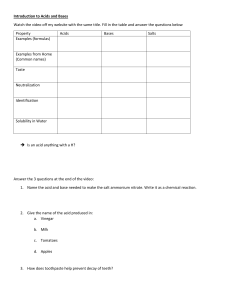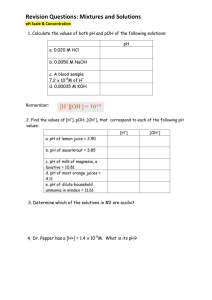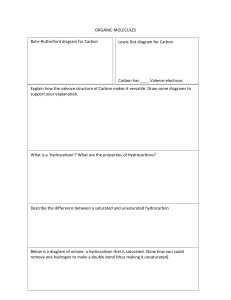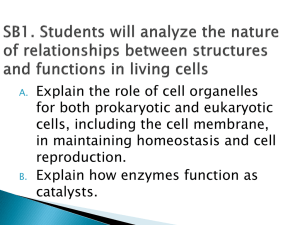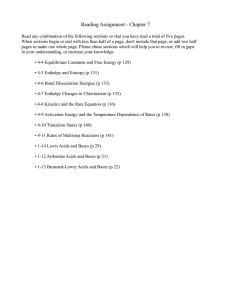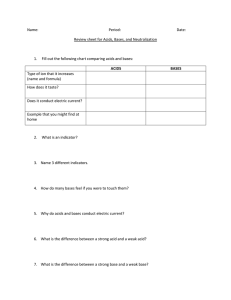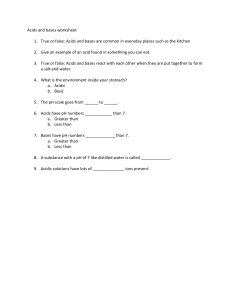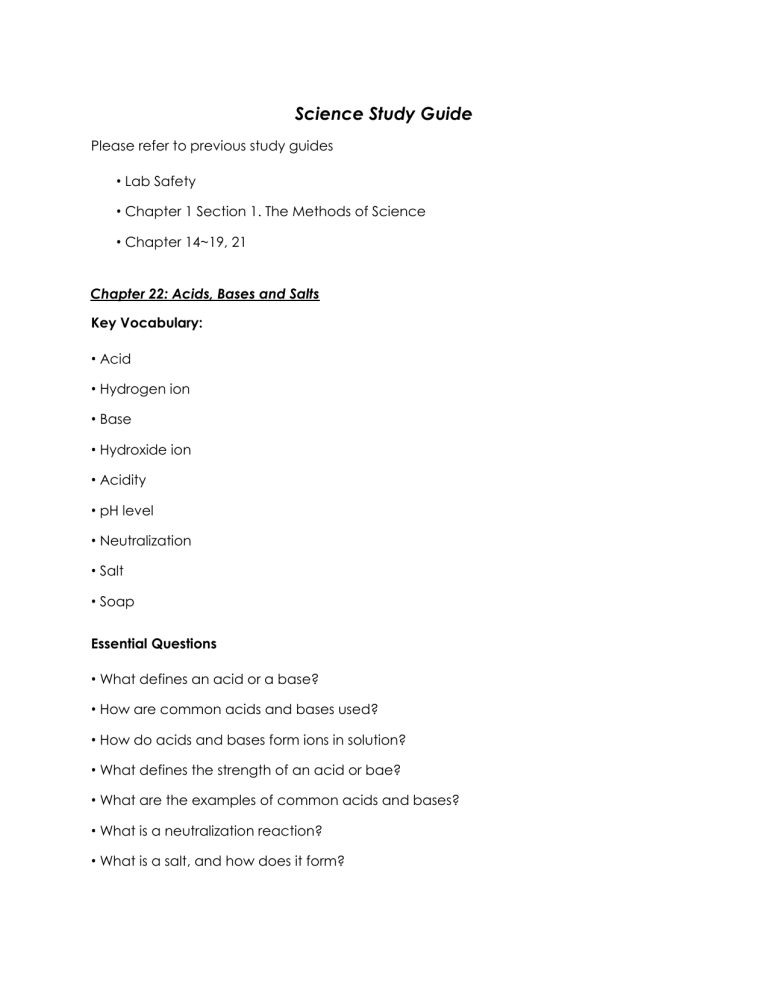
Science Study Guide Please refer to previous study guides • Lab Safety • Chapter 1 Section 1. The Methods of Science • Chapter 14~19, 21 Chapter 22: Acids, Bases and Salts Key Vocabulary: • Acid • Hydrogen ion • Base • Hydroxide ion • Acidity • pH level • Neutralization • Salt • Soap Essential Questions • What defines an acid or a base? • How are common acids and bases used? • How do acids and bases form ions in solution? • What defines the strength of an acid or bae? • What are the examples of common acids and bases? • What is a neutralization reaction? • What is a salt, and how does it form? • How do soaps and detergents differ? Chapter 23: Organic Compounds (Honors) Key Vocabulary: • Organic compound • Hydrocarbon • Saturated hydrocarbon • Unsaturated hydrocarbon • Isomer • benzene Essential Questions • What is the difference between organic and inorganic compounds? • Why can carbon form so many different compounds? • What is the difference between a saturated and an unsaturated hydrocarbon? • What are isomers and how do their properties vary? Final Exam Essay Prompts For your final exam, please choose ONE of the following essay questions: 1. Is the soap better or detergent better? What are the advantages and disadvantages of each in terms of cleaning effectiveness, economy, environmental impact, and compatibility with different water types? Explain your reasoning. 2. Choose ONE type of chemical reaction (synthesis, decomposition, single replacement, double replacement, combustion). Write the chemical equation of the reaction. Explain where we can discover the example in our daily life and the advantages of this reaction.
